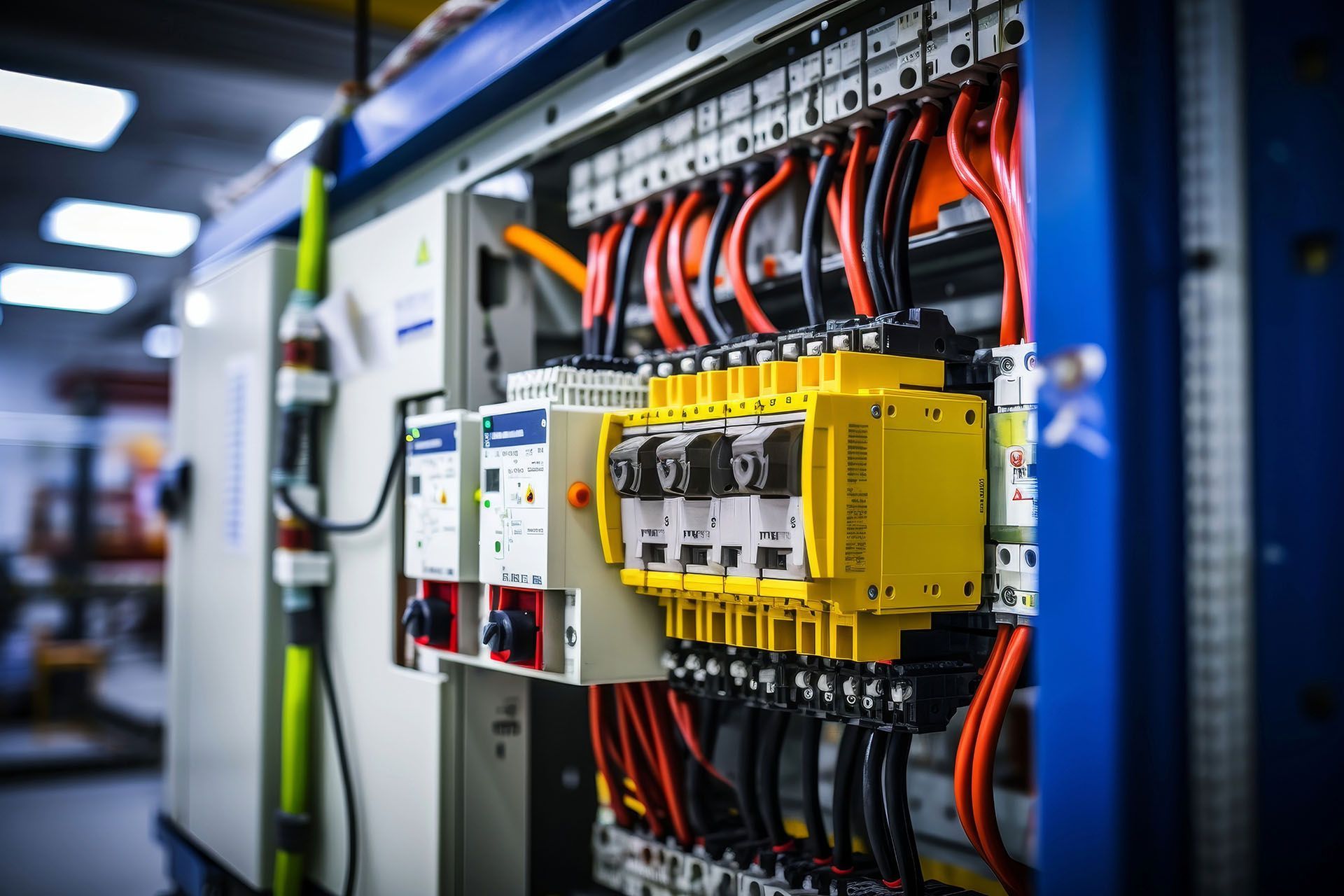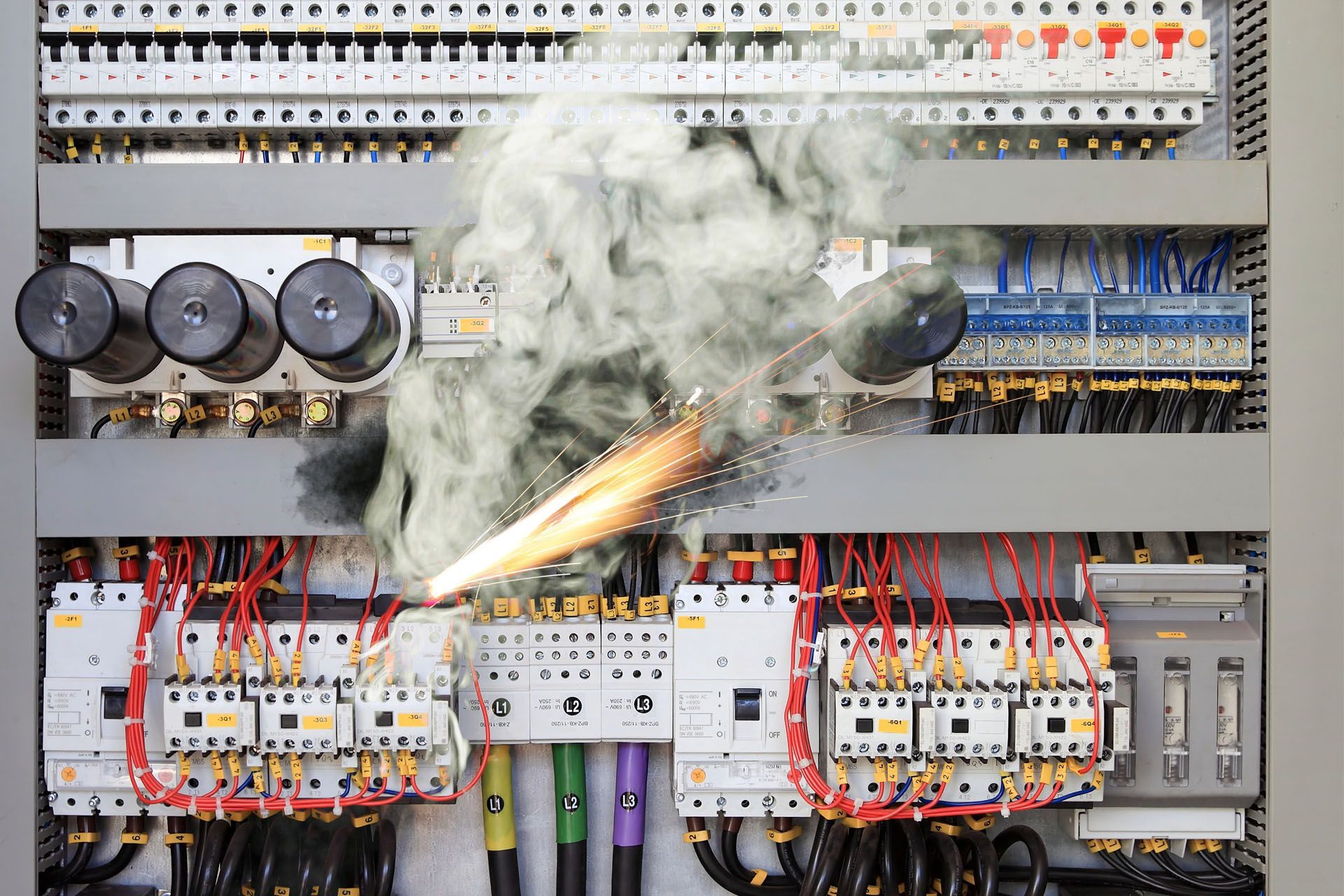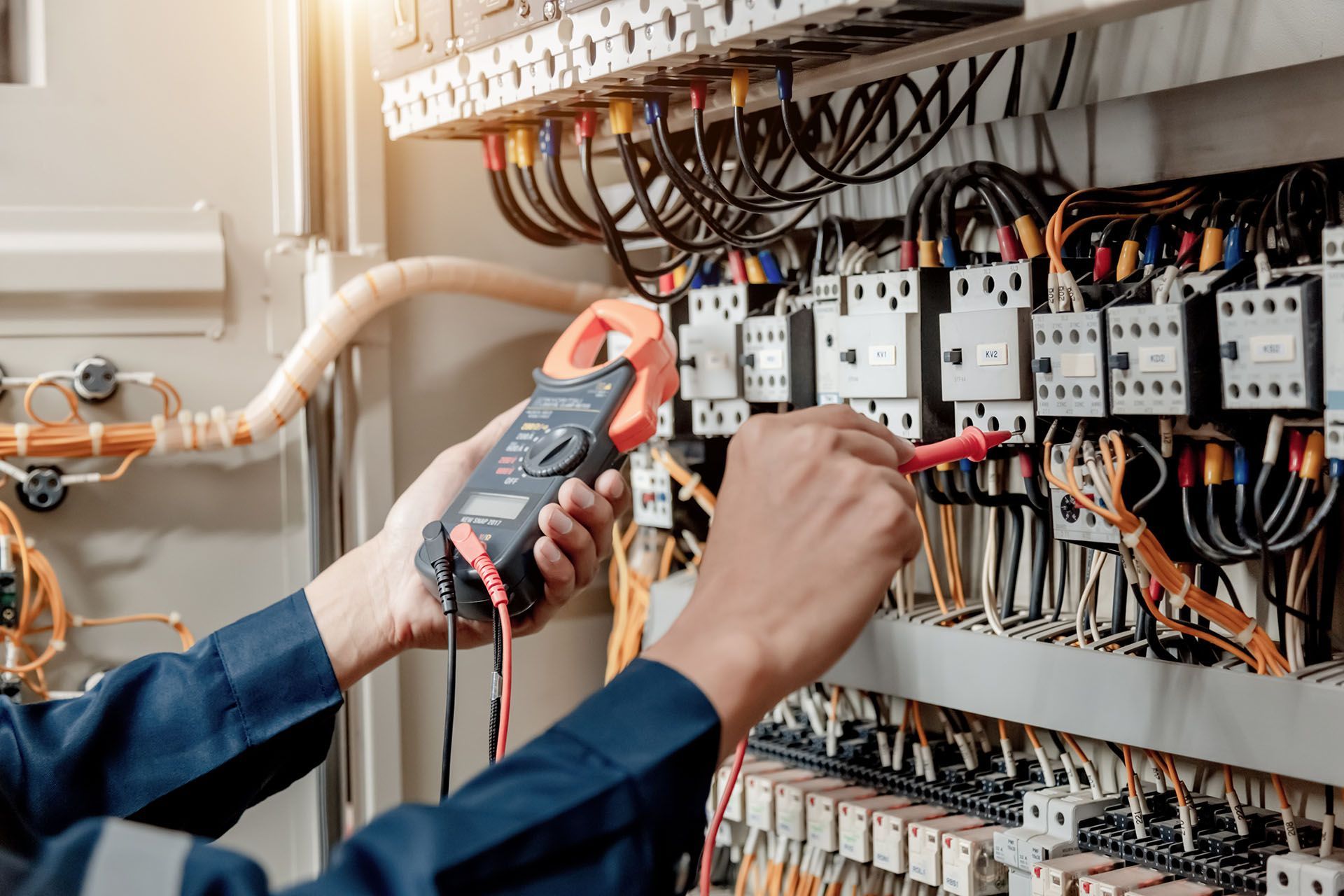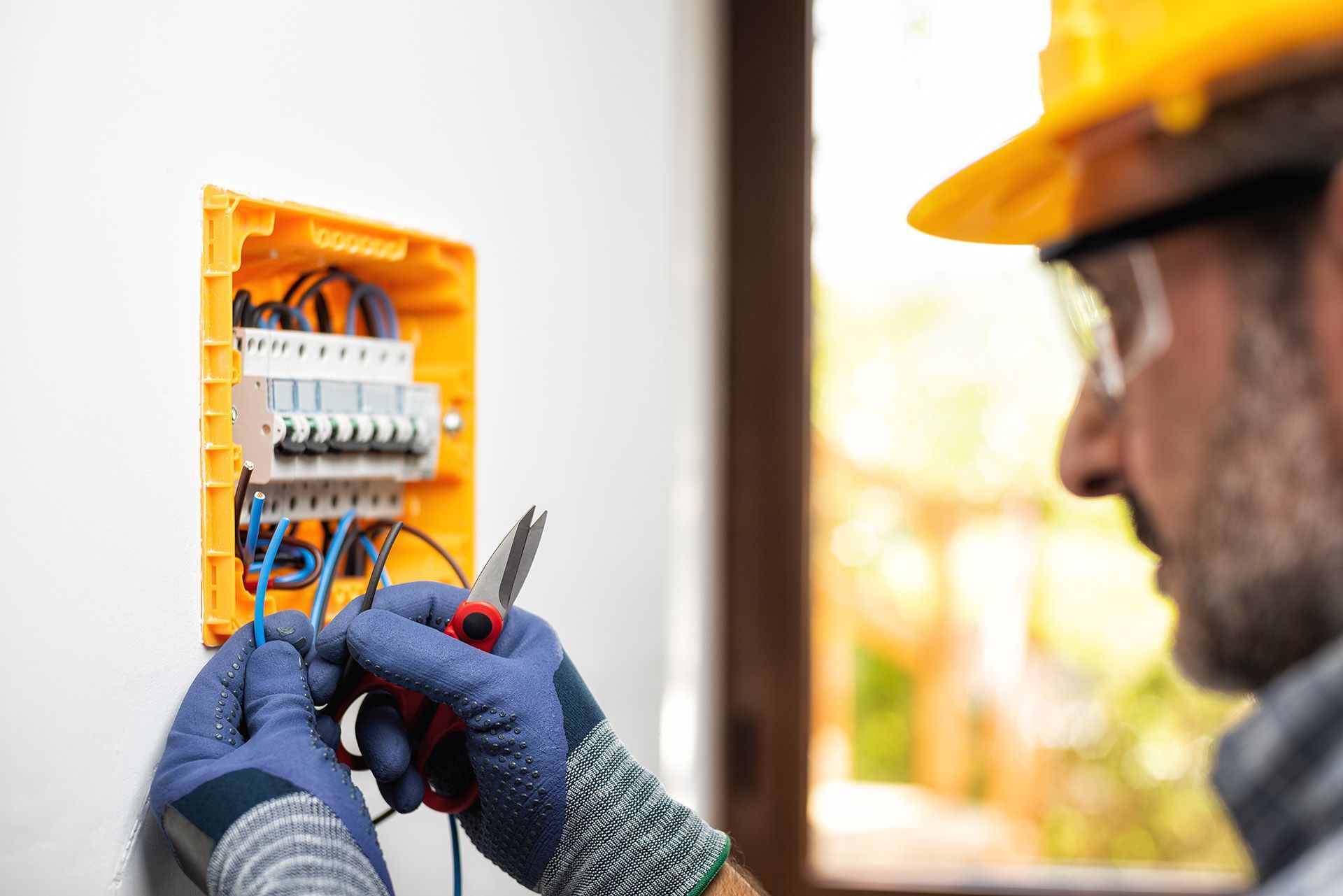Address: Unit 19, 54 Fairey Rd, South Windsor NSW 2756
How to Tell If Your Commercial Property Needs an Electrical Rewiring
Electrical problems are the kind of thing you don’t notice — until they start costing you. Whether you run an office, a retail store, or an industrial facility, your wiring is working hard behind the scenes every day. But when it starts failing? That’s when you get disruptions, safety risks, and even compliance headaches. Faulty wiring isn’t just an inconvenience. It can lead to downtime, equipment damage, or even fire hazards. And in a commercial setting, that’s the last thing you want.
Unlike residential properties, commercial buildings often have higher power demands, more complex wiring systems, and stricter safety requirements. Electrical wiring deteriorates over time, and outdated installations may no longer support modern business operations. That’s why periodic inspections and timely electrical rewiring are essential.
But how do you know when it’s time to upgrade your electrical system? Below, we explore the key signs that indicate your commercial property may need electrical rewiring and why working with licensed commercial electricians in Western Sydney — who follow the latest Australian safety standards — is very important.
Understanding AS/NZS 3000 & Commercial Wiring Standards
Electrical installations in Australia must be completed by licensed electricians who follow the AS/NZS 3000:2018 Wiring Rules. These rules set the technical standards for designing, installing, and verifying electrical systems.
While business owners don’t need to know the finer details, it’s important to understand that the Wiring Rules ensure that any electrical work done on a property meets safety, efficiency, and compliance standards. A professional electrician will use them to determine the correct wiring methods, load capacities, and safety protections for your commercial property.
If your building is older, experiencing frequent electrical issues, or no longer meeting business needs, a full electrical rewiring may be required to maintain safety and compliance. Here are the biggest warning signs to watch for:
Key Signs Your Commercial Property Needs Rewiring
Recognising the warning signs of electrical failure early can prevent costly repairs, safety hazards, and business disruptions. Here are the most common indicators that your commercial property may need electrical rewiring.
1. Frequent Power Trips or Circuit Breakers Cutting Out
Circuit breakers and safety switches are designed to protect your system from overloads, but if they’re constantly cutting power, your wiring may need an upgrade. In a commercial setting, this may happen when:
- Multiple appliances or machines run simultaneously.
- The wiring is old or overloaded.
- There is a short circuit or defective wiring.
Circuit breakers are designed to protect your system from overloads, but if they’re constantly cutting power, your wiring may need an upgrade.
2. Flickering or Dimming Lights
Lighting issues in commercial properties aren’t just a nuisance — they signal underlying electrical problems. If you notice:
- Lights dimming when equipment is switched on.
- Flickering lights, even after replacing the bulbs.
- Uneven brightness across different areas.
These could indicate voltage fluctuations, overloaded circuits, or loose connections. Faulty wiring can reduce energy efficiency and even damage expensive lighting fixtures over time.
3. Sparking or Overheating Power Points and Switches
Electrical outlets should never feel hot to the touch or emit sparks when used. If you notice:
- Discolouration or burn marks around sockets.
- A faint burning smell near power points.
- Small electrical shocks when touching appliances.
This could mean your wiring is deteriorating or incorrectly installed. Commercial buildings often have high-energy appliances and machinery, so defective wiring increases the risk of electrical fires and damage to equipment.
4. High Electricity Bills Without Explanation
If your energy costs are rising without any major changes to operations, inefficient wiring could be the culprit. Old or defective wiring can cause:
- Power leakage, leading to wasted energy.
- Inconsistent voltage supply, making equipment work harder.
- Outdated electrical layouts, requiring more power to function properly.
Upgrading your wiring can help optimise power usage and reduce electricity costs in the long run.

5. Outdated Wiring and Electrical Panels
If your commercial property was built 40+ years ago and still has its original wiring, it may no longer comply with modern safety standards. Many older buildings still contain aluminium or degraded wiring, which lacks the durability and conductivity of modern copper wiring used in today’s installations. Older buildings often have:
- Porcelain fuses instead of modern circuit breakers.
- Aluminium or outdated wiring that degrades over time.
- Limited power outlets that don’t support current needs.
A licensed commercial electrician can assess whether your system meets today’s standards and recommend an electrical rewiring solution.
6. Buzzing Sounds or Electrical Odours
Hearing a buzzing or humming sound from outlets, switches, or walls? This could mean a hidden electrical fault behind the walls, such as:
- Loose or faulty wiring.
- Electrical arcing, which increases fire risks.
- Poorly installed connections.
A burning smell near electrical panels or outlets is even more serious — it could indicate overheating or melted wiring. If you notice these signs, call a qualified electrician immediately.
7. Expansion or Increased Power Needs
If your business has grown and now relies on more computers, servers, machinery, or specialised equipment, your original wiring may not support the increased demand. Overloading your electrical system can cause:
- Frequent power outages or surges.
- Overheating wires and components.
- Reduced efficiency in machinery and electrical appliances.
Modern businesses require well-distributed power loads and energy-efficient wiring systems. If your property was wired years ago and hasn’t been upgraded, it’s worth assessing whether an electrical rewiring project could improve performance and future-proof your electrical infrastructure.
8. A Growing Reliance on Extension Cords
If your workplace has power strips and extension cords running everywhere, it’s a clear sign that you don’t have enough outlets to meet demand. An outdated wiring layout may not support your current electrical needs, leading to overloaded circuits and potential safety risks. In commercial environments, improper use of extension cords can:
- Overload circuits, leading to overheating.
- Create trip hazards and workplace safety risks.
- Result in non-compliance with workplace safety regulations.
Electrical rewiring allows you to install additional power points where needed, ensuring a safer and more efficient workspace.
9. Your Electrical System No Longer Meets Safety Regulations
While the AS/NZS 3000:2018 Wiring Rules are written for electricians, property owners should still ensure their buildings meet the latest safety standards. A commercial electrician will assess whether your system:
- Has proper grounding and surge protection.
- Uses safety switches and RCDs (Residual Current Devices) to prevent electrocution.
- Complies with modern safety measures to reduce fire hazards.
Electrical codes evolve over time to reflect new safety technologies and efficiency improvements. If your electrical wiring is outdated, it may no longer be legally compliant, putting you at risk of insurance issues or penalties.
10. Renovations or Changes in Building Use
If you’re renovating, changing tenants, or repurposing a commercial space, your existing wiring may need an upgrade to suit new operational needs. Different industries have different electrical requirements:
- Retail stores may need high-capacity lighting and additional outlets.
- Restaurants require heavy-duty kitchen equipment wiring.
- Offices need robust power distribution for computers and data centres.
A professional commercial electrician can assess whether your current system can handle these changes or if an electrical rewiring is necessary to accommodate them.
Final Thoughts
Ignoring signs of faulty electrical wiring in a commercial property can lead to serious consequences. Electrical fires, costly business disruptions, compliance penalties, and rising energy costs are all risks associated with outdated or failing wiring.
Regular inspections and proactive electrical rewiring can improve safety, efficiency, and the longevity of your electrical system. A licensed electrician will ensure your commercial property’s wiring is up to date and meets Australian safety standards, including AS/NZS 3000.
If any of the issues we’ve covered above sound familiar, the team at Ronika can help with professional electrical rewiring services to get your property back on track.
And if you’re setting up a new commercial space, getting the electrical design and installation right from the start is just as important. A well-planned, compliant system can save you from expensive electrical rewiring down the line. Ronika’s team ensures your electrical infrastructure is built for reliability, efficiency, and future growth. Reach out today to discuss your commercial electrical needs.













